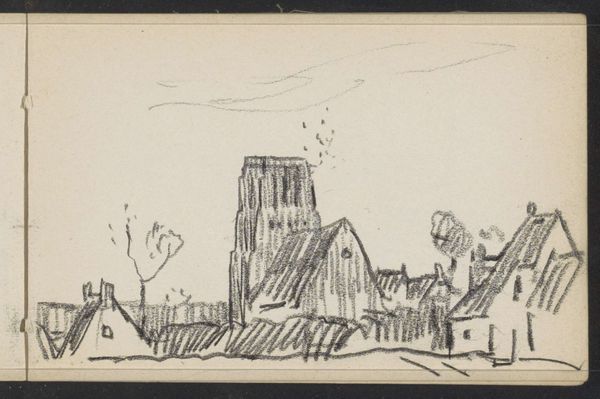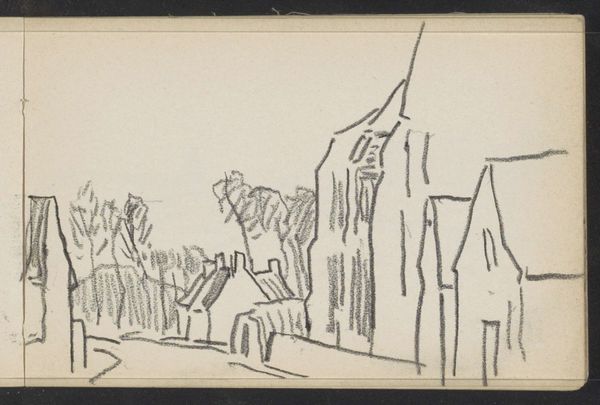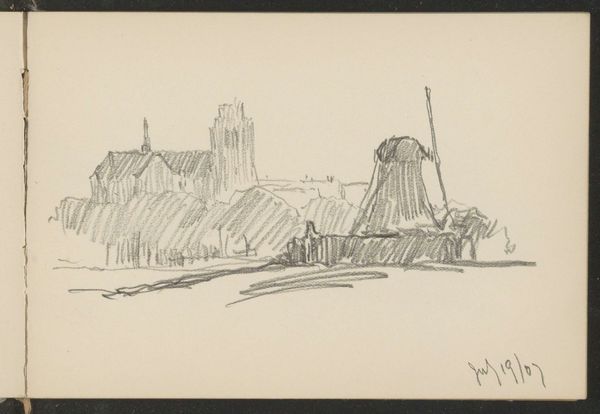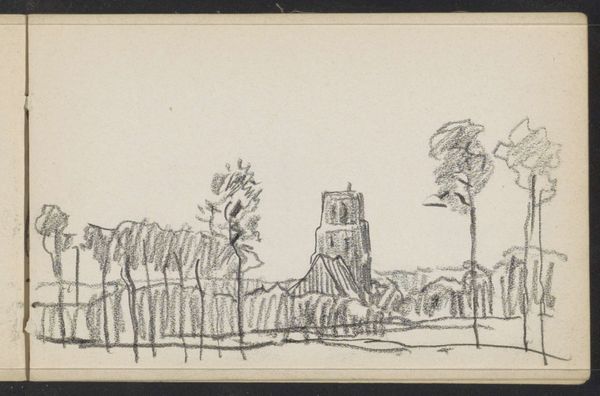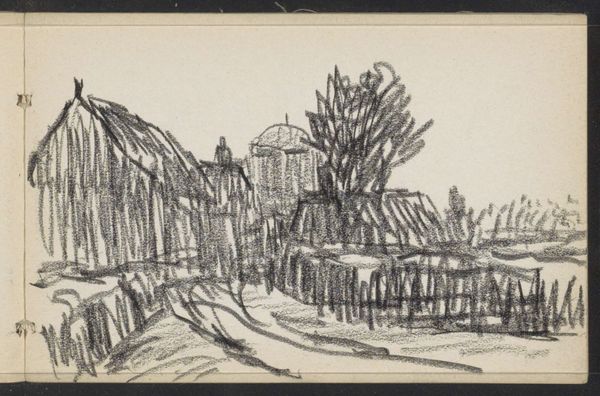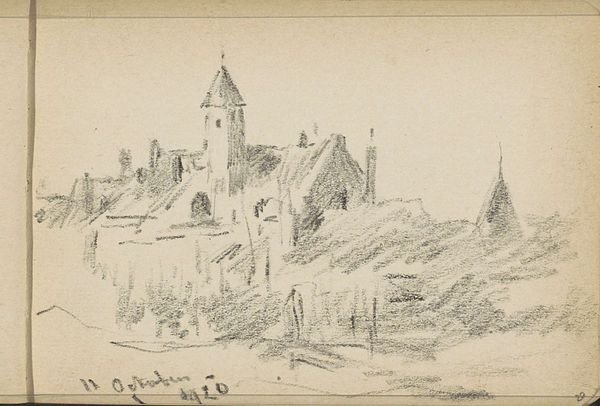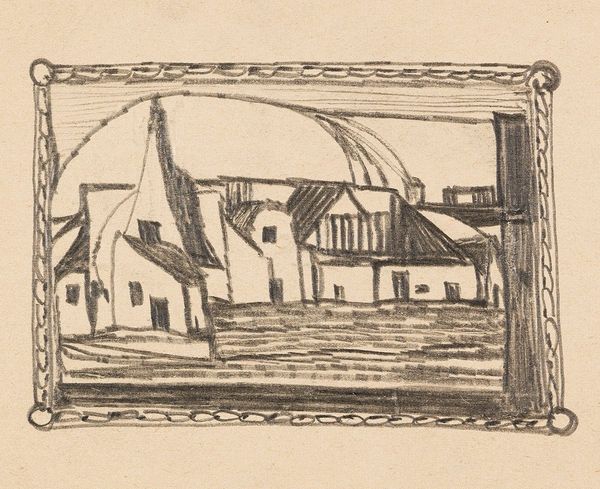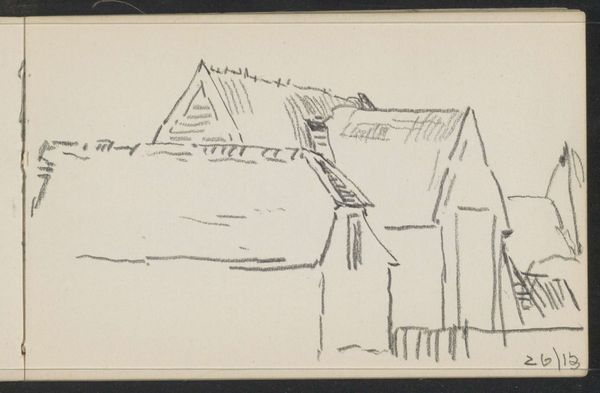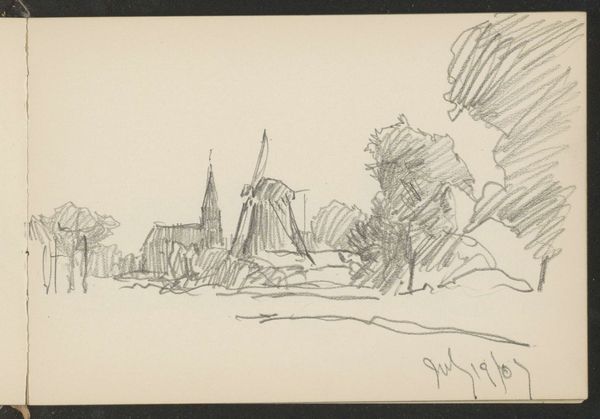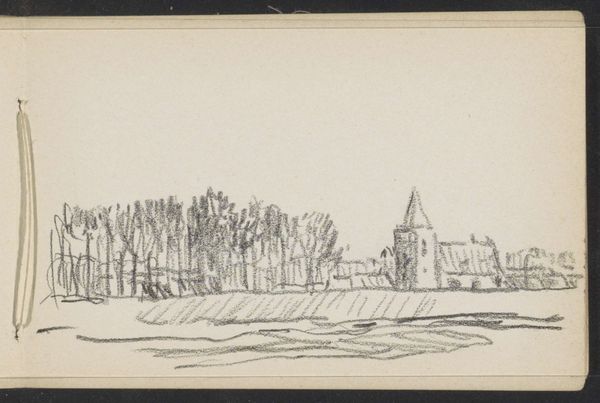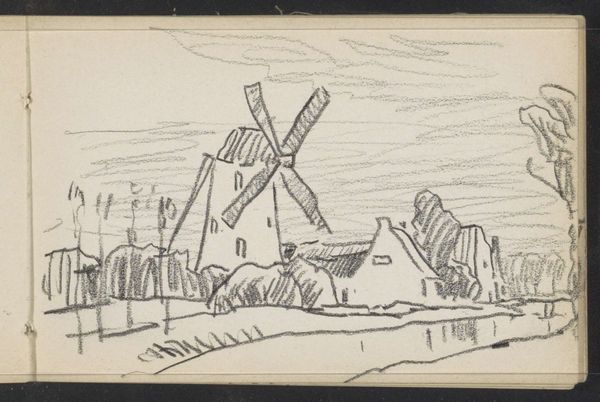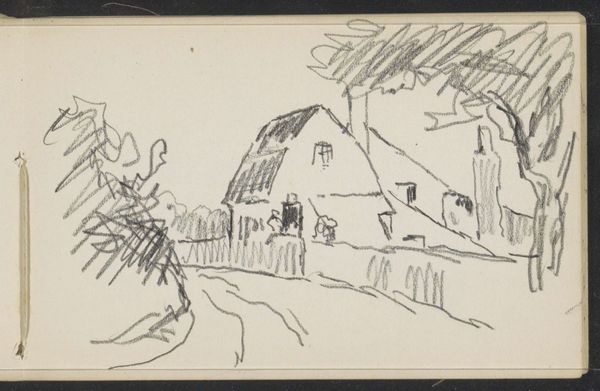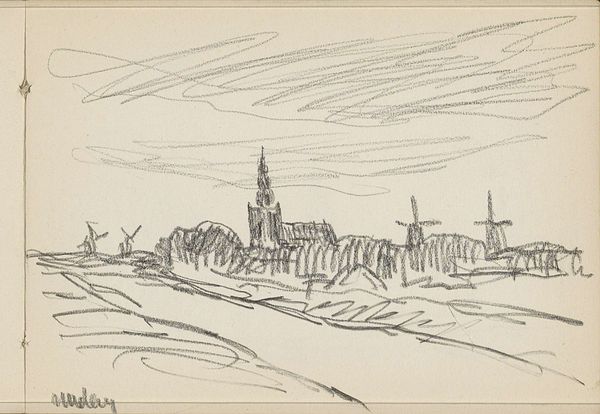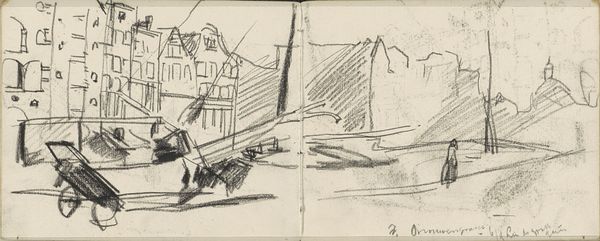
drawing, pencil
#
drawing
#
pen drawing
#
pen illustration
#
pen sketch
#
landscape
#
personal sketchbook
#
ink drawing experimentation
#
pen-ink sketch
#
pencil
#
pen work
#
sketchbook drawing
#
cityscape
#
storyboard and sketchbook work
#
sketchbook art
Copyright: Rijks Museum: Open Domain
Editor: This drawing, titled "Nicolaaskerk te Kortgene," was made by Alexander Shilling in 1923. It seems to be done in pencil and ink, a quick sketch capturing a church in a landscape. It has a rather somber, almost melancholic, feel. What strikes you when you look at this piece? Curator: I’m drawn to the starkness, the way the artist captures the church – an undeniable symbol of institutional power – almost swallowed by the landscape. Given its creation in 1923, so soon after the devastation of WWI, I wonder about the artist’s commentary on the Church's role, or lack thereof, in preventing such horrors. Do you think the seeming isolation of the church contributes to this reading? Editor: That's interesting. I hadn’t considered the historical context of the First World War. I was more focused on the composition and how the rough sketching gives it an unfinished feeling. Curator: Exactly. That “unfinished feeling,” as you put it, resonates with the broken promises and the shattered illusions of the post-war period. Perhaps the artist is suggesting the church itself is somehow incomplete or unfulfilled in its mission. We can view landscapes not just as passive backdrops but active participants in the cultural and political discourse of the time. Does this reading shift your initial impression at all? Editor: Definitely. I now see the drawing as more than just a simple landscape sketch. Considering it in light of the post-war disillusionment adds a whole layer of meaning that wasn’t apparent initially. I appreciate that. Curator: Art has that power. It invites us to engage with history, with social structures, with our own assumptions and interpretations, prompting a more critical and nuanced perspective of the world around us. Editor: Thank you for that perspective. I’ll definitely remember to consider context more deeply moving forward.
Comments
No comments
Be the first to comment and join the conversation on the ultimate creative platform.
